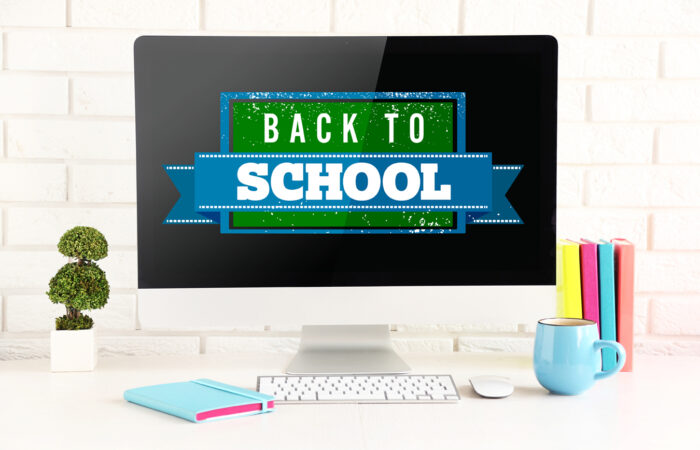Through the years, the staff at Central Florida Lifestyle has had the opportunity to talk to educators, guidance counselors and school officials for many stories. Here are some of our favorite lessons.
3 Ways to Beat First-Day Fears
Courtesy of an administrator at Bright Horizons Children’s Centers
The first day of school can be difficult for children of all ages, but especially for children entering school for the first time. Even children who have already attended day care or other child care outside of the home can be upset or concerned on the first day. What can you do to help make it easier for your child? Here are some tips:
1. Talk to your child. Remind your child that he or she is not the only student who is a bit uneasy about the first day of school. Teachers know that students are anxious and will make an extra effort to make sure everyone feels as comfortable as possible.
2. Choose a buddy. If possible, find out the names of other children in your child’s class. Find another child in the neighborhood with whom your youngster can walk to school or ride with on the bus.
3. Be a cheerleader. Point out the positive aspects of starting school. Tell your child that he or she will see old friends and meet new ones. Refresh his or her memory about previous years when he or she may have returned home after the first day with high spirits because it was fun.
It’s impossible to protect your children from the world, and school is a big step toward their independence. With your reassurance and patience, your children’s transition to school can be rewarding for everyone.
Dealing with Middle School Anxiety
Courtesy of an administrator at Foundation Academy
Most middle schoolers love roller coasters for the thrill of the ride. The adrenaline rush is awesome! Roller coasters can also invoke feelings of terror. While most adolescents run to get in line, there are others that do not look forward to the spiraling ride.
Entering middle school is a lot like getting on that roller coaster. Sixth-, seventh- and eighth-grade students face many ups and downs, both emotionally and socially. They can experience the wind in their faces as they speed ahead intellectually. Their desire for independence creates challenges. They are seeking guidance, yet a chance for independent thinking spiritually and morally. They are also experiencing rapid physical changes. During this time period their bodies will undergo more development than at any other time, except the first two years of life.
One of the key elements of the roller coaster ride is the track. There is a defined path, built-in safety features and guardrails. Parents, teachers, church leaders and caring adults are especially needed during this time. Preteens are moving toward independence, yet still desperately need family, role models and people that care. It is a time to stay involved in their lives.
This transitional time is normal and temporary. Middle school students are wonderful and need time to soar with their strengths, make good choices and learn from mistakes. Parents and leaders should provide encouragement and support.
5 Tips for Parents of Freshmen
Courtesy of a Seminole County Public Schools guidance counselor
1. Stay positive. It may be scary to leave middle school, but if students are encouraged that each person can make one another feel welcome, all incoming freshmen will feel more confident. New students need to strive to stay positive, knowing that they have a right and a reason to be in their new school.
2. Get connected. Parents and students should make a special effort to form relationships with the school counselor, teachers, staff and other adults. It is in everyone’s best interest to embrace and respect the diversity of race, culture, religious beliefs, family background and economic status.
3. Support students at home. Balance expectations of a student’s role at home with his or her new responsibilities at school. Students should be encouraged to follow through with homework and school assignments as well as other household chores. Parents should communicate regularly with their children to find out what their work load is at school and temper it with housework.
4. Settle conflicts immediately. While it is important for parents to listen to their children when he or she shares information about personal issues at school, it is also vital that parents understand that perceptions are not necessarily facts. Settling conflicts effectively and quickly may involve school personnel. Parents should always remember there are no sides. The best interest of a student should always be the priority for everyone involved.
5. Create a high school plan. Parents and students should begin to map out a four-year plan as soon as a student enters high school. Students who have set goals are more likely to stay on track academically and socially.
These tips can help parents and students navigate the sometimes-overwhelming task of entering high school. While the demands of high school may be challenging, having specific goals can help students and parents have a positive high school experience.
How to Make the College Transition Easier
The transition between high school and college is never an easy one for parents and students alike. As parents, you can help ease the process. One of the most important things to do is to ask your child questions about what they want in a college experience. What are their strengths? What kind of learning environment is best for them? Do they want to stay close or move far? Listen to their goals and their fears. Together you can decide and narrow down colleges that will be right for them.
Once the decisions have been reached, visit these universities together and look at campuses. Talk to students there and find out more information about the location.
Another important step is to talk budget with your child. It is important to work out a payment plan, such as whether school will be paid for through loans or grants. Teens should be encouraged to be realistic when it comes to where the family can afford to send them. Talking about real world situations can help your teen realize that he or she is moving into a more independent part of his or her life, which now includes a new list of responsibilities and priorities to worry about.





Comments